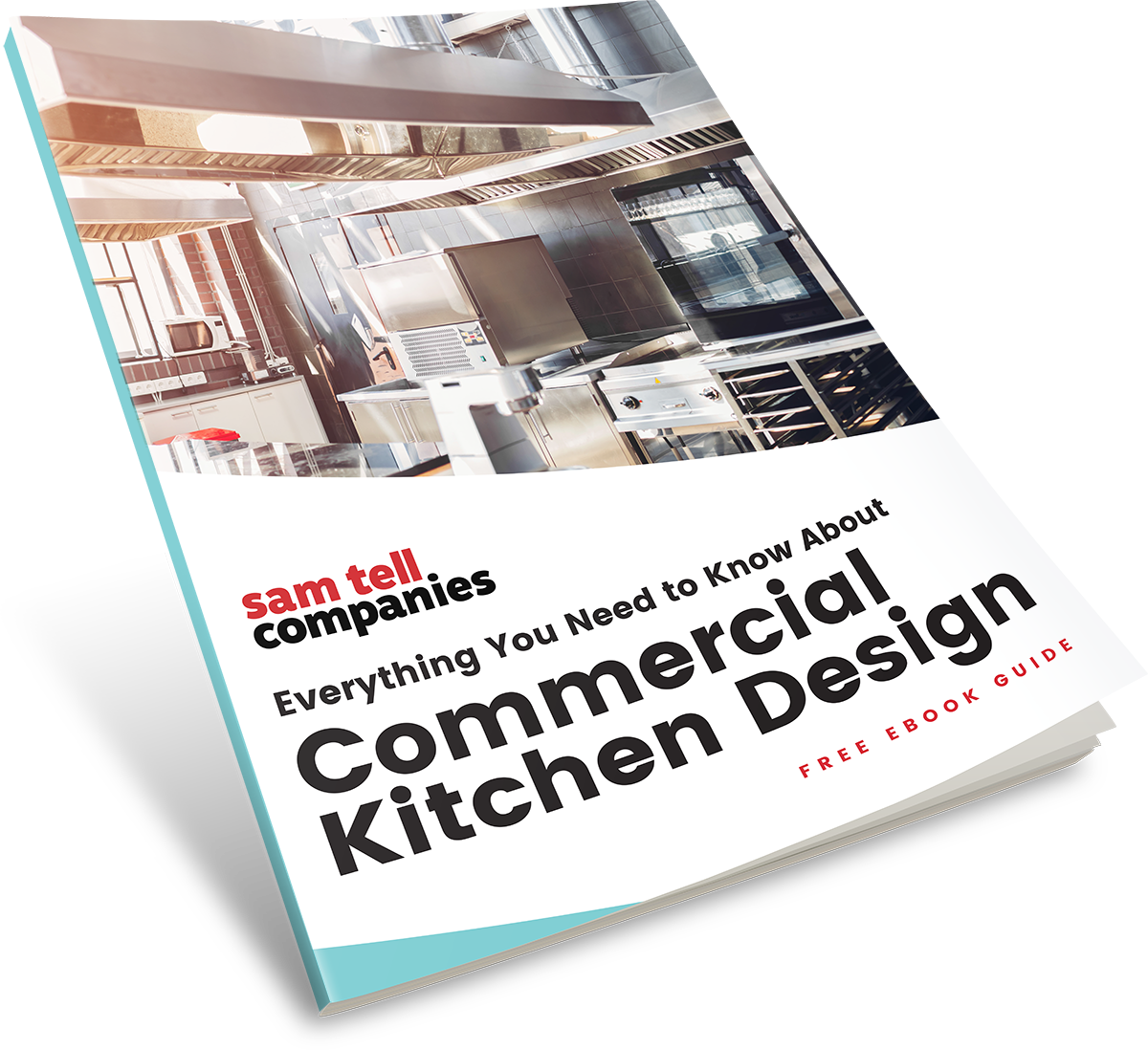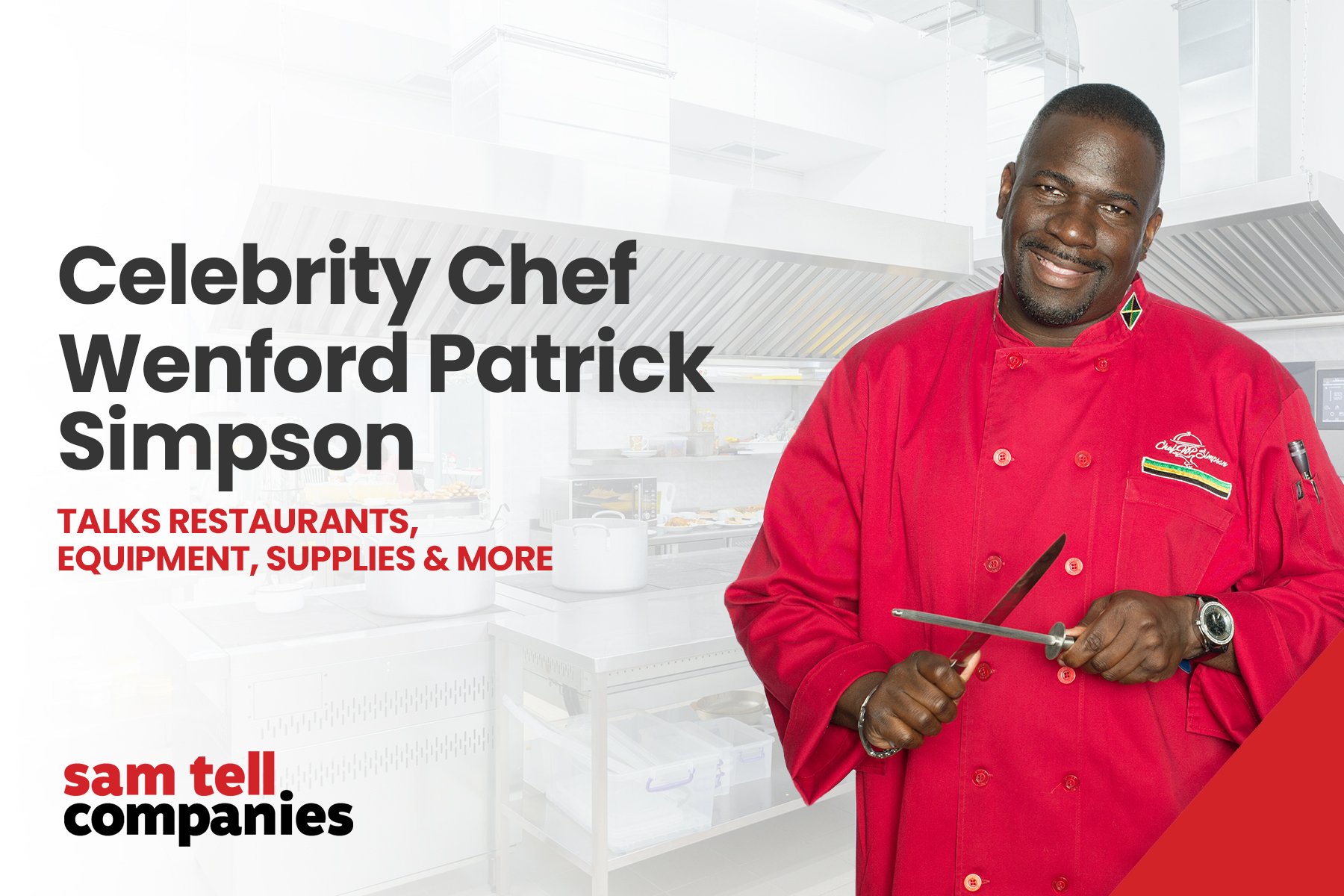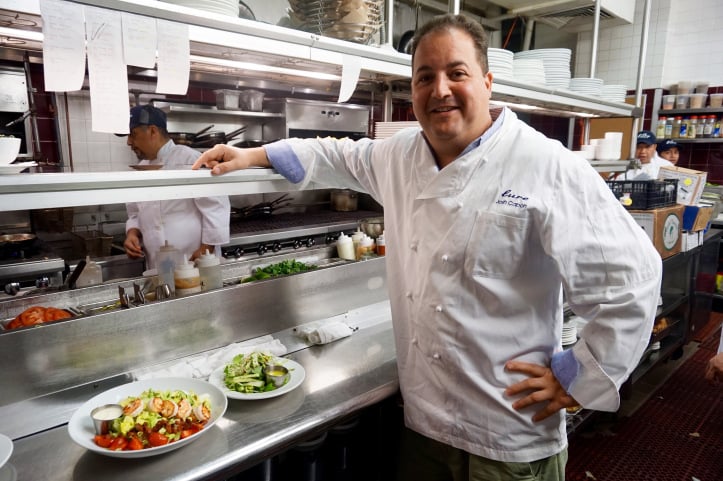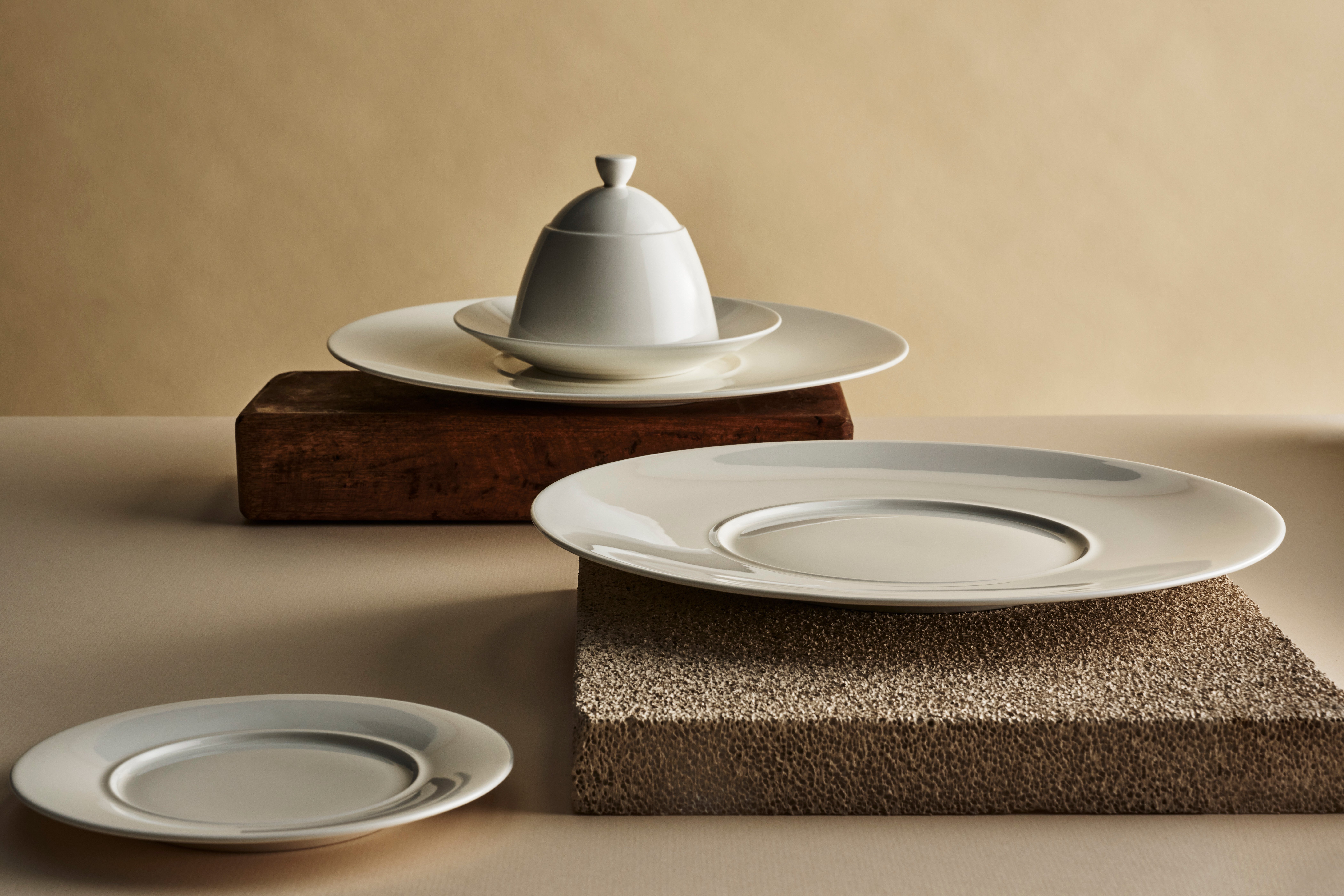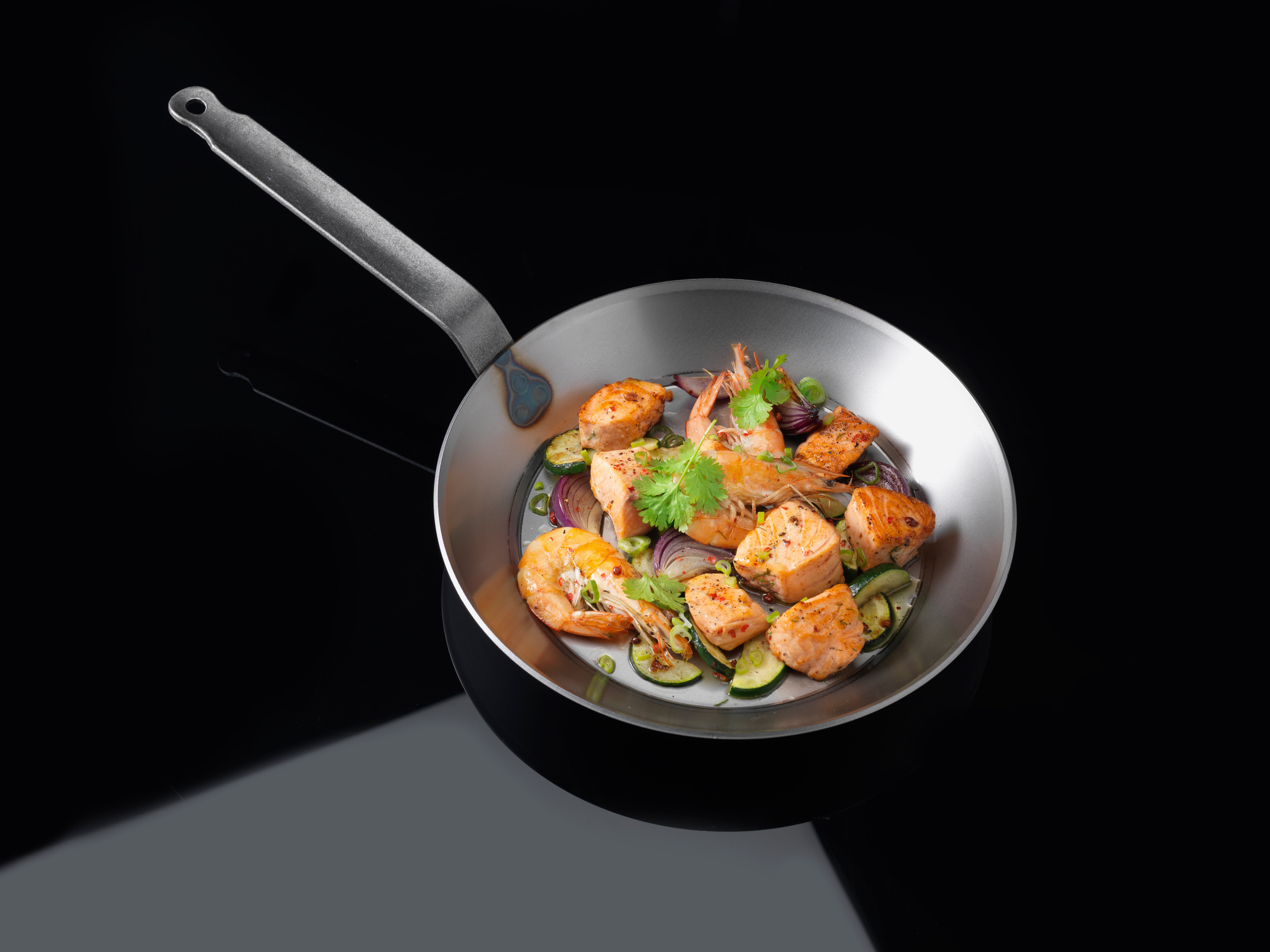There are countless kinds of fry pans on the market. Between the different finishes, handles, materials, and more, there’s a configuration to fit any chef’s needs. But do you know all the parts and pieces to choose from? Below, we’ve dissected the fry pan, outlining all the different factors to consider when picking your perfect pan.
Material
Because different ingredients react to different metals, you need to consider the material before buying any pan. These are the differences you should take into account:
Aluminum
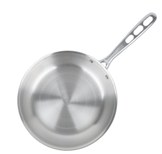
Aluminum delivers the highest thermal conductivity of all cookware materials, it allows you to cook fast and efficiently. Its not as dense as other metals, making the pans lighter. It's great for solid pieces of meat, chicken, or fish.
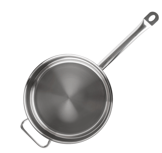
Stainless Steel
Whereas aluminum can react to certain ingredients, stainless steel does not react to food. It’s best suited for a stock pot or a sauce pot when you’ve got a large amount of liquids and all you’re trying to do is cook it. Most of these pans are induction-safe.
Cast Iron
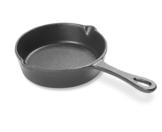 Cast iron has a property called “emissivity.” What that means is when it gets hot, it stays hot and it releases that heat at a more even rate than other types of cookware. This is ideal for one-pot or one-pan recipes that transfer from the stove to the oven.
Cast iron has a property called “emissivity.” What that means is when it gets hot, it stays hot and it releases that heat at a more even rate than other types of cookware. This is ideal for one-pot or one-pan recipes that transfer from the stove to the oven.
Coating
What does your menu look like? Vollrath® has a variety of options based on what you're cooking up!
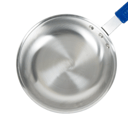
Natural
If you're looking to sear or brown meats, especially individual cuts, this is a great cost-effective option. The smooth polished finish allows for uniform cooking.
Satin
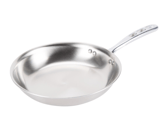
If you're looking for a step up, consider pans with a satin finish. They provide better heat absorption than natural finish pans and they are easier to clean. They are also more elegant than your basic but reliable natural finish pans.
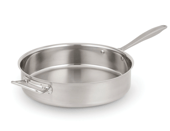
Mirror
If you're looking for a high-quality pan, consider pans with a mirror finish. Not only do they look unique, they provide excellent heat absorption and they are ideal for presentation cooking. If you're cooking in your front of house, we highly recommend this type of cookware.
Nonstick
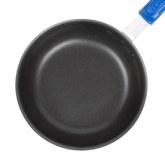
Looking for a reliable nonstick pan? The CeramiGuard® II finish is a safe and affordable option. An even better option is PowerCoat2™. This nonstick is double-layered so it provides strong resistance to scratches and abrasions. If you're looking for an effortless cleanup, your best bet is the SteelCoat x3™. Its triple-layer coating provides top-notch durability, release, and abrasion resistance.
Handles
Another important aspect is the handle. You're going to want a comfortable, easy-to-grip handle that makes sautéing and frying an absolute pleasure.
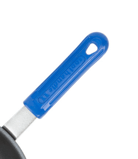
Cool Handle®
The cool handle, oven safe to 450 degrees Fahrenheit, provides excellent insulation from heat with its rubber grip. Because the handle is not bonded, it can be easily replaced.
TriVent®
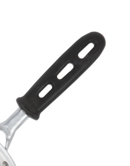
This one is ergonomically designed for comfort & durability. The permanently bonded handle has a vented appearance for cooler touch and its permanently bonded. Like the Cool Handle, the TriVent handle is oven- safe up to 450 degrees Fahrenheit.
Intrigue® Cookware Handle
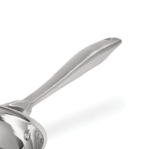
This handle is contoured for a secure, comfortable fit. It's shaped to accommodate both hand-over and hand-under grip styles. Talk about ergonomics! All the while, the handle is hollow so it remains cool.
Nickel Plated Steel
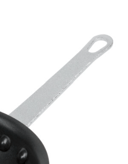
This is your standard corrosion-resistant flat handle.
Hollow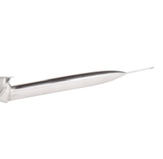
This is a single piece of hollow, water-proof stainless steel.
Rivets
EverTite™ Rivets
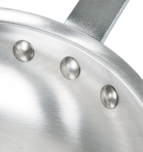
They are permanently attached to the aluminum Wear-Ever® fry pans and come with a lifetime warranty against loose rivets.
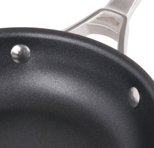
Standard Rivets
Standard rivets that come with the stainless steel fry pans, like the Intrigue collection.
Rivetless
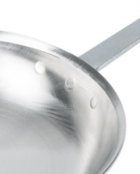
Eliminate food, mold, and bacteria buildup.
Welded Handles
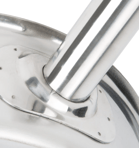
Your last option is welded handles. They will not come loose and they provide easy interior cleaning.
Invest in Fry Pans That Last!
No matter what you're using your fry pans for, you need quality cookware for quality results. Contact us today for a cookware consultation!
.jpg?width=1200&name=BRA_4-SeriesInductionRange_B6I06410698%20(1).jpg)
